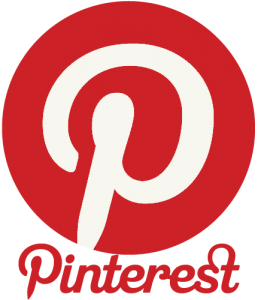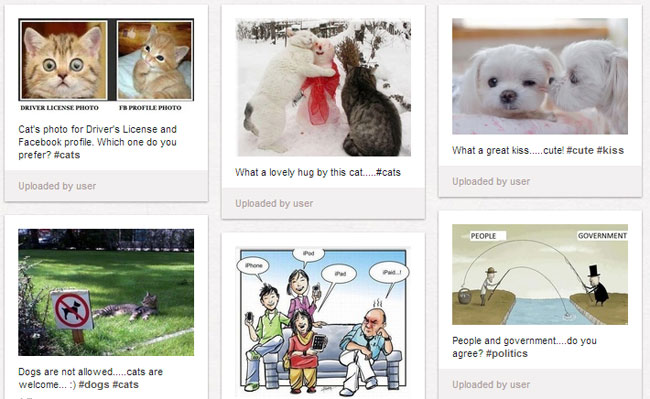 In terms of growth Pinterest has been the most successful social network in history. It was started only 4 years ago it hit 10 million unique US visitors a day faster than any other independent site in history.
In terms of growth Pinterest has been the most successful social network in history. It was started only 4 years ago it hit 10 million unique US visitors a day faster than any other independent site in history.
Much of the success of Pinterest can be found in the quality of the product that they have created. Pinterest identified an underserved demographic in the market and designed something that they would love. But the quality of their product is only part of the secret of their success.
Pinterest is also supported by a very clever marketing strategy. The founder of Pinterest Ben Silbermann has himself said that the success of Pinterest is not due to clever engineering but to smart marketing. Here we will look at the 6 marketing lessons from Pinterest that all entrepreneurs should know.
Embrace grass roots marketing
Three months after launching Pinterest the site still had only about 3,000 users. Ben Silbermann was looking for ways to increase the sites visibility and decided that the best route was to look for more people like himself who would appreciate Pinterest.
He started to organize meet-ups at boutiques and other trendy locations. Invited to these events were designers and other creatives who would appreciate and use Pinterest. People would be photographed at these events and those photos then used to promote Pinterest. By embracing grass roots marketing he was able to create the initial momentum for Pinterest that would cause it to take off.
It’s marketer friendly
Pinterest has become a great place to promote your products and brand. People who arrive from Pinterest are 10% more likely to make a purchase than if they arrive from a different site. As well as this 32% of online shoppers have purchased an item because they saw it on Pinterest.
With statistics like these it is no surprise that many marketers are getting involved with Pinterest. While a small portion of these marketers use spammy tactics most understand the importance of creating beautiful pinboards and participating in the Pinterest community. These marketers have a strong vested interested in developing and promoting Pinterest.
If you look on the internet about Pinterest you will find an abundance of information on how to promote yourself or your business on the site. Marketers thus help to improve the sites visibility because it is to their own advantage to do so.
The importance of visuals
Unlike almost any other social networking platform, Pinterest is almost entirely visual with little or no text. This has a number of advantages. Firstly visual images are more striking and aesthetically appealing than lines of text. Secondly it is easier for users to curate visual images from the internet. Unlike Twitter or Facebook where there is almost an obligation to say something clever or funny, Pinterest allows to share a visual simply because you like it. And lastly because most of the images are internally linked through repining they are easy to share without having to provide credit.

Courting the press isn’t always necessary
One well known story about Ben Silbermann is that he had a press email account which he failed to even check for months. While many start-ups focus heavily on attracting press attention, Silbermann focused more on attracting Pinterest core users who would enjoy the site.
As he noted the press will still write about you whether you talk to them or not and so in some ways it doesn’t make any difference. Talking to the press was also seen as a distraction from growing the business organically.
And finally Silbermann is a self described introvert and so didn’t always feel that he could comfortably explain his story over the telephone. What this shows is that you don’t necessarily have to be a great self promoter in order to succeed.
Use exclusivity to your advantage
While Pinterest may have the fastest year on year user growth of any site in history it has actually achieved this in a very controlled manner. In order to join Pinterest you needed to be invited by someone else who already belonged.
At first Ben Silbermann chose to give the invitations to other designers and people in the creative industries. These people would serve not only as influencers but also as role models of how the site was to be used.
Pinterest used the exclusivity of being invitation only as a marketing tactic. Bloggers who talked about the site would be rewarded with more invites. Also there was a sense of belonging to a select community because not anybody could join unlike Facebook, MySpace or Twitter.
The urge to collect
As a child Pinterest Founder Ben Silbermann enjoyed collected stamps and insects. He observed that what a person chose to collect said a lot about their personality.
This urge to collect is something that most people share. Pinterest has clever appealed to this natural urge to turn its user into visual content curators. They scour the internet and collect visual images around a certain theme. This helps Pinterest in a number of different ways.
Not only does it develop more content for the site it also makes it more useful for other users. The themed boards helps other users find things they might like to acquire. Another site that has appealed to the same urge is AirBnB. They allow users to create wish lists of their favorite properties. These curated lists can then be shared on Facebook. These two examples show how powerful it can be to turn your users into your content creators by appealing to the collector within them.
Make your users want to share
Pinterest has made it very easy for people to like and repin content so that it goes viral. Because of the frequency with which content can go viral users are encouraged to share. With other social platforms content can also be voted downwards but with Pinterest there are few ways to respond negatively. Also because they are curating and sharing content rather than creating it, many people feel more comfortable putting it up onto the site.